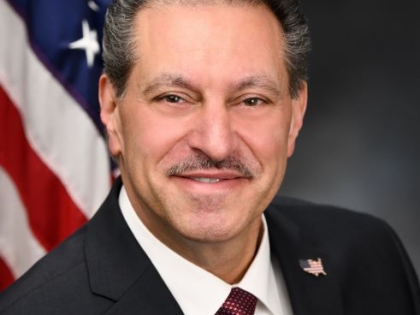
Addabbo introduces legislation mandating life imprisonment without parole when the victim is a police officer
Senator Joseph P. Addabbo, Jr.
May 3, 2022
NYS Senator Joseph P. Addabbo, Jr. recently introduced legislation (S.3459) to make life imprisonment without parole mandatory for defendants convicted of murder in the first degree when the victim is a police officer. Assemblywoman Stacey Pheffer Amato sponsors this legislation (A.9502) in the Assembly.
“Every day police officers risk their own lives protecting and defending members of the community, including strangers, so we can all stay safe,” Addabbo said. “Families of murdered law enforcement officers, like Officers Mora and Rivera who were killed in the line of duty earlier this year, should never have to endure this pain, and criminals of these heinous crimes must never, under any circumstances, be considered for release,” added Addabbo.
In 2004, the New York State Court of Appeals determined that New York's existing capital punishment (death penalty) statute was unconstitutional and could not be enforced. In a capital case, specifically when the jury is deadlocked and unable to agree on death or life without the possibility of parole, the jury would be informed that, in the case of deadlock, the trial judge would ultimately decide whether to sentence the defendant to as little as 20 years to life or as much as life in prison without parole. The court found this might coerce jurors to change their votes to the death penalty, to avoid the defendant from being released on parole in 20 years. This potential for coercion was found to violate the due process clause of the New York State Constitution. The court did not hold that the death penalty was an inappropriate punishment for certain heinous crimes; only that the procedure for imposing the sentence was flawed.
After the Court of Appeals invalidated New York's death penalty law, the Legislature enacted Chapter 765 of the Laws of 2005, also known as "The Crimes Against Police Officers Act." Part of this law created the new crime of aggravated murder - deemed to occur when a person intentionally kills a police officer, peace officer or an employee of the Department of Correctional Services. The only sentence which can be imposed under this 2005 law for the crime of aggravated murder is life imprisonment without parole.
However, the earlier crime of murder in the first degree, the charge brought against those who intentionally killed law enforcement officers prior to the enactment of the 2005 Crimes Against Police Officers Act, remained on the books following the Court of Appeals ruling on the death penalty statute. As such, state law technically continues to provide for prosecutorial discretion in allowing those who murder law enforcement officers to be eligible for parole - in direct contradiction to the intent of the 2005 statute.
This legislation seeks to close the loophole that allows parole for murderers of police officers by requiring that mandatory life sentences without parole be imposed for these circumstances without exception.
“I will always have the utmost respect for the men and women who have chosen a career in law enforcement. Let this legislation serve as a warning to the criminals in our State that should they take the life of one of our police officers, they will spend the rest of their lives in prison without the possibility of parole. All in our communities, especially officers and their families, deserve to know that we value the lives of our heroes,” said Assemblywoman Stacey Pheffer Amato.
“Not only will these reprehensible crimes be treated with zero-tolerance by mandating convicted cop-killers receive the highest allowable punishment in New York State, it will also ensure that survivors won’t have to relive the ordeal every two years since these criminals won’t ever be considered for parole,” Addabbo concluded.